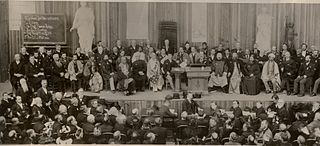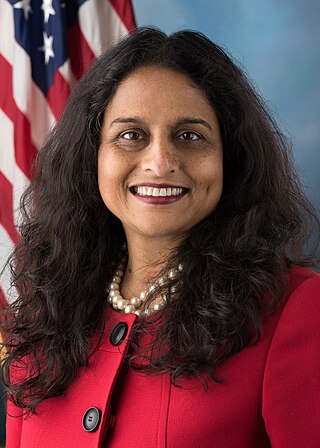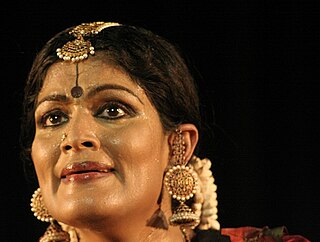
Sarvepalli Radhakrishnan was an Indian politician, philosopher and statesman who served as the second president of India from 1962 to 1967. He previously served as the first vice president of India from 1952 to 1962. He was the second ambassador of India to the Soviet Union from 1949 to 1952. He was also the fourth vice-chancellor of Banaras Hindu University from 1939 to 1948 and the second vice-chancellor of Andhra University from 1931 to 1936. Radhakrishnan is considered one of the most influential and distinguished 20th century scholars of comparative religion and philosophy, he held the King George V Chair of Mental and Moral Science at the University of Calcutta from 1921 to 1932 and Spalding Chair of Eastern Religion and Ethics at University of Oxford from 1936 to 1952.

Vinayak Narahari Bhave, also known as Vinoba Bhave, was an Indian advocate of nonviolence and human rights. Often called Acharya, he is best known for the Bhoodan Movement. He is considered as National Teacher of India and the spiritual successor of Mahatma Gandhi. He was an eminent philosopher. The Gita has been translated into the Marathi language by him with the title Geetai.

Pandurang Shastri Athavale, also known as Dada /Dadaji, was an Indian activist, philosopher, spiritual leader, social revolutionary, and religion reformist, who founded the Swadhyaya Parivar in 1954. Swadhyaya is a self-study process based on the Bhagavad Gita which has spread across nearly 100,000 villages in India, Americas, Europe, Middle East, Oceania and other Asian countries with five million adherents. Noted for his discourses on the Bhagavad Gita, the Vedas and the Upanishads, Dadaji is also known for his selfless work and brilliant knowledge in scriptures.

Swami Chinmayananda Saraswati ,also known as Pujya Gurudev Swami Chinmayananda Saraswati ,born Balakrishna Menon; 8 May 1916 – 3 August 1993, was a Hindu spiritual leader and a teacher. In 1951, he founded Chinmaya Mission, a worldwide nonprofit organisation, in order to spread the knowledge of Advaita Vedanta, the Bhagavad Gita, the Upanishads, and other ancient Hindu scriptures. Through the Mission, Chinmayananda spearheaded a global Hindu spiritual and cultural renaissance that popularised these spiritual texts and values, teaching them in English all across India and abroad.

There have been several meetings referred to as a Parliament of the World's Religions, the first being the World's Parliament of Religions of 1893, which was an attempt to create a global dialogue of faiths. The event was celebrated by another conference on its centenary in 1993. This led to a new series of conferences under the official title Parliament of the World's Religions with the same goal of trying to create a global dialogue of faiths.

Acharya Shri Mahapragya was the tenth head of the Śvetāmbara Terapanth order of Jainism. Mahapragya was a saint, yogi, spiritual leader, philosopher, author, orator, and poet.
The Swadhyaya Movement or Swadhyaya Parivara started in mid 20th-century in the western states of India, particularly Maharashtra and Gujarat. Founded by Pandurang Shastri Athavale (1920-2003), the movement emphasizes self-study (swadhyaya), selfless devotion (bhakti) and application of Indian scriptures such as the Upanishads and Bhagavad gita for spiritual, social and economic liberation.

Eliot Sandler Deutsch was a philosopher, teacher, and writer. He made important contributions to the understanding and appreciation of Eastern philosophies in the West through his many works on comparative philosophy and aesthetics. He was a Professor Emeritus of Philosophy at the University of Hawaiʻi at Mānoa.
The Baháʼí Faith in Nepal begins after a Nepalese leader encountered the religion in his travels before World War II. Following World War II, the first known Baháʼí to enter Nepal was around 1952 by N. P. Sinha who moved to Birgunj and the first Nepalese Baháʼí Local Spiritual Assembly elected in 1959, and its National Assembly in 1972. For a period of time, between 1976 and 1981, all assemblies were dissolved due to legal restrictions. The 2001 census reported 1,211 Baháʼís, and since the 1990s the Baháʼí community of Nepal has been involved in a number of interfaith organizations including the Inter-religious Council of Nepal promoting peace in the country. The Association of Religion Data Archives estimated some 4,300 Baháʼís in 2005.
Atheism and agnosticism have a long history in India and flourish within the Śramaṇa movement. Indian religions like Jainism, Hinduism and Buddhism consider atheism to be acceptable. Doubt has been ingrained even in Indian spiritual culture.
Talwalkar is an Indian surname under Karhade and Gaud Saraswat Brahmin community.

Anju Bhargava is a retired federal executive, a former senior banker and a pioneering community builder who served as a founding member of the New Jersey Corporate Diversity Network under Governor Christy Whitman, community builder fellow in the Clinton administration and a member of President Barack Obama's inaugural Advisory Council on Faith Based and Neighborhood Partnership. She has provided thought leadership in the public and private sectors, locally and nationally, published papers and received many awards.
The Baháʼí Faith in Angola begins after ʻAbdu'l-Bahá wrote letters encouraging taking the religion to Africa in 1916. The first Baháʼí pioneered to Angola about 1952. By 1963 there was a Baháʼí Local Spiritual Assembly in Luanda and smaller groups of Baháʼís in other cities. In 1992 the Baháʼís of Angola elected their first National Spiritual Assembly. The Association of Religion Data Archives estimated some 2,000 Baháʼís in 2005.

Salvatore Martinez is an Italian scholar, the first layperson president of the Rinnovamento nello Spirito Santo in Italy. President of the Vatican Foundation "International Center Family of Nazareth" and personal representative of the OSCE Chairperson-in-Office 2018 on Combating Racism, Xenophobia, and Discrimination, also focusing on Intolerance and Discrimination against Christians and Members of other Religions".

Sophia Wadia, née Sophia Camacho, was a Colombian-born naturalized Indian theosophist, littérateur, the founder of PEN All India Centre and the founder editor of its journal, The Indian PEN. She also cofounded The Indian Institute of World Culture, Bangalore and the Asian Book Trust, Bombay. The Government of India honoured Wadia in 1960, with the award of Padma Shri, the fourth highest Indian civilian award, for her services to the nation.

Geeta Mehta is an Indian-American social entrepreneur, urban designer, architect and author. She is the co-founder of Asia Initiative, and URBZ, and an adjunct professor at the Graduate School of Architecture Planning and Preservation at Columbia University.

Geeta Chandran is an Indian Bharatanatyam dancer and vocalist. Trained in Carnatic music, she is a visionary and celebrated artist in Indian classical Bharatanatyam, recognized for her work in theatre, dance, education, videos and films.
Mary Evelyn Tucker is the co-founder and co-director of the Yale Forum on Religion and Ecology with her husband, John Allen Grim. Tucker teaches in the joint Master's program in religion and ecology at Yale University between the School of the Environment, and the Divinity School. She also has an appointment at Yale's Department of Religious Studies. A pioneer in the field of religion and ecology, she has authored and edited around 20 volumes and has published hundreds of articles.











